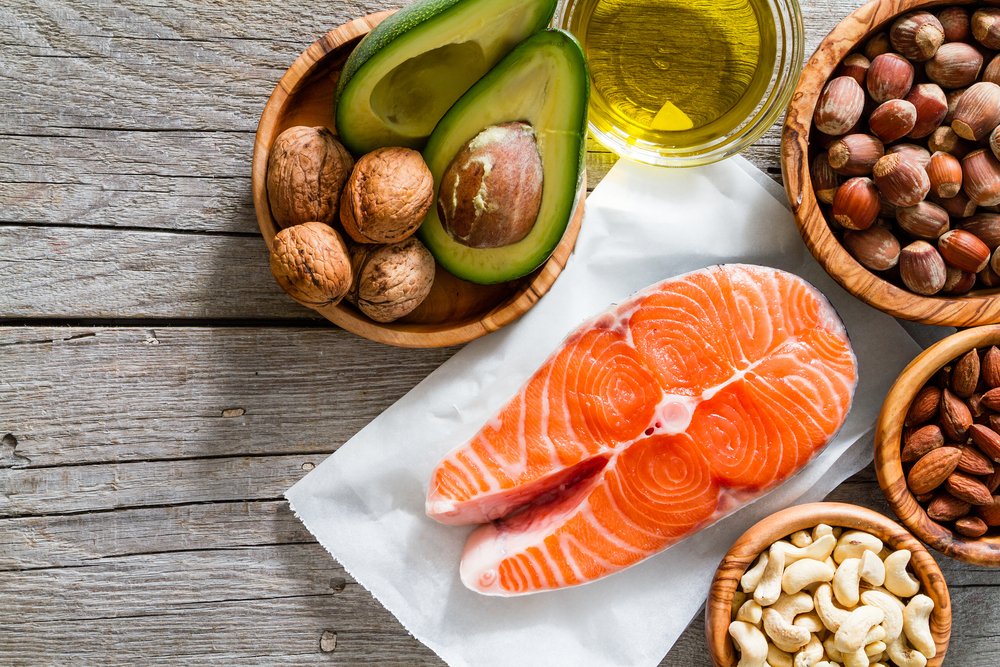The Future of Low-Carb Diets: What We've Learned from Past Fads

From keto to Paleo to Atkins, low-carb diets have been controversial for decades. Some of these diets are fads, touting programs that boost initial weight loss but may be difficult to sustain. Others have been empirically studied and supported as long-term, sustainable, healthy lifestyles.
Here's a breakdown of a few popular low-carb diets—how they can help, how they can hinder, and how they are informing the future of low-carb trends.
Low-Carb, High-Fat (LCHF)

Have you seen more and more avocado recipes surfacing when you search for healthy snacks? This is part of the ethos of low-carb, high-fat diets, also known as a ketogenic (or keto) diet, which limit your carb intake so that the body goes into a state of ketosis and starts to burn fat as a backup energy source.
During this process, the body releases large amounts of fatty acids. These fatty acids turn into ketones, which supply energy to the brain. Depending on the specifics of the diet, carbs are generally restricted to less than 50 grams per day, while it's encouraged (and essential) to consume a high amount of healthy fats. If you're trying a keto diet, make sure to include full-fat cheese, nuts, coconut oil, and avocado in your diet.
A ketogenic diet is powerful because it supports weight loss, lowers bad cholesterol levels, and promotes healthy LDL cholesterol levels. This diet has also been known to reduce blood sugars and insulin levels. But while ketones can help reduce inflammatory stress, high levels may also lead to dehydration and micronutrient deficiencies so make sure you are consuming enough of the right calories.
The rise in the adoption of ketogenic diets has helped to dispel the myth that high-fat foods are a leading cause of heart disease, obesity, and other related health issues. As ketogenic diets have become more popular, new low-carb diets may include more high-fat foods.
Low-Carb, High-Protein

Paleo diets, or low-carb, high-protein diets, have becoming increasingly popular in recent years. The diet is inclusive of all foods that would have been consumed during the Paleolithic period. Those who follow the Paleo diet consume large quantities of meat, fish, fruits, vegetables, nuts, and seeds (grains, dairy, and sugar products are not allowed).
Paleo diets have been known to support stable energy levels, decrease the risk of heart disease, and improve immunity. There's still some controversy, however, over the amount of protein required to sustain a Paleo diet.
As this diet continues to gain momentum, we may see an emphasis on eating good meats and high-quality produce in future low-carb diet plans.
Atkins Diet

One of the best known low-carb diets, Atkins is a combination of ketogenic and paleo diets. You reduce your carb intake substantially while eating large quantities of protein and fats. It involves four phases: induction, balancing, fine-tuning, and maintenance.
Atkins has, however, been subject to much controversy since its inception over 40 years ago. Concerns have been raised over the sustainability of the diet in particular, as many participants have not been able to maintain their new lifestyle.
Despite these concerns, Atkins can be successful for some people. When followed correctly, it promotes weight loss, and is inexpensive and easy to follow. With the sharp reduction in sugar and simple starches, Atkins can inspire research into newer low-carb diets and help people start a healthy lifestyle.
Lessons for the Future
The health industry is saturated with the latest fad diets, tips, and tricks to support healthy lifestyle goals. It can be difficult to cut through the noise and find something that works for you. Across the board, low-carb diets have been both praised and vilified, and scientists continue to research the potential health effects of reducing carb intake. As these studies and theories evolve, the focus will likely shift from quantity of carbs to the quality of carbs.
However, there are some common themes among low-carb diets: focus on veggies and protein, don't fear the fat, and follow a plan that you can maintain in the long-term. The last part is especially important—a drastic reduction of carbohydrates can lead to side effects including headaches and fatigue as well as long-term effects like vitamin/mineral deficiencies. So be careful to track your calorie intake accordingly, moderate your body's reactions, and find a sustainable plan that makes you feel great.
Photos: Elli O., Krzysztof Puszczyński, Krzysztof Puszczyński, Landwirtschaftlicher Informationsdienst, avrene
Healthy Eating
- Healthy Snacks
- Healthy Meals
- Healthy Recipes
- Sports Nutrition
- Nutrition and Special Diets
- 21 Day Fix
- 5 Popular Diet Similarities
- Alkaline Diet
- Anti-Inflammatory Diet
- Calorie Counting
- Carb Cycling Diet
- Celiac Disease
- Cholesterol
- Clean Eating
- Crohn's Disease
- DASH Diet
- Detox Diet
- Diabetes
- Diabetes Diet
- Diet Pill Dangers
- Fat Burning Foods
- Gluten-free Diet
- Glycemic Index
- Heart Health
- High Blood Pressure Diet
- High Fiber Foods
- How to Eat Healthy
- How to Lower Blood Pressure
- Hypertension
- IBS Diet
- Ketogenic Diet
- Liquid Diet
- Low GI Foods
- Low-Carb Diet and Foods
- Low-Fat High-Carb Diet
- Mediterranean Diet
- Mediterranean Diet Foods
- Military Diet
- Nutrition Labels Explained
- Paleo Diet
- Raw Food Diet
- Superfoods
- Sustainable Weight Loss
- Thrive Diet
- Vegan Diet
- Vegetarian Diet
- Weight Loss Shakes
- Whole30
- Vitamins, Minerals & Nutrients
